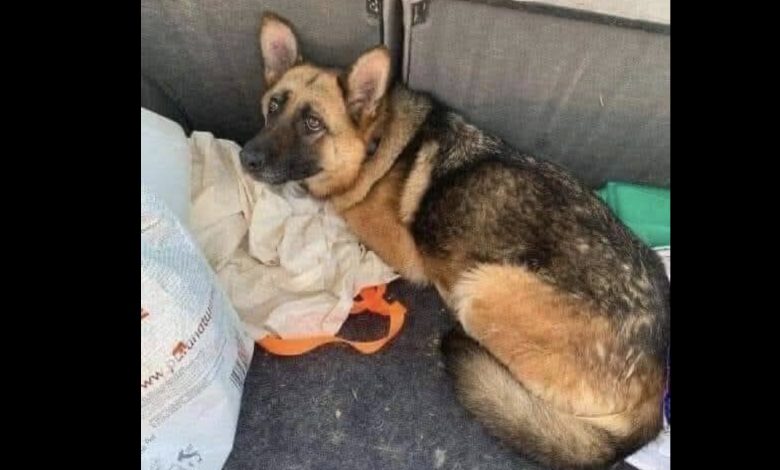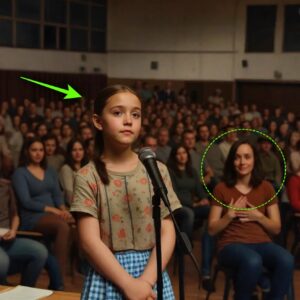
I still remember the moment I saw him huddled against that cold metal pole, his leash wrapped tight around his trembling body. Beside him lay a tattered bag containing the few belongings someone had abandoned—an old blanket, a half-empty bowl, and a threadbare toy. I didn’t think of rent, bills, or my husband’s reaction. All I saw was terror in those wide, pleading eyes.
Without hesitation, I scooped him into my arms. His ribs pressed painfully against my chest, and he whimpered as if surprised someone would dare to touch him. “It’s okay,” I murmured, stroking his muddy fur. “I’m here now. You’re safe.” In that instant, I vowed to become whatever he needed to mend the pieces of his broken world.
That night, I laid him on a pile of soft blankets in the corner of my living room. He shivered so violently the whole couch trembled. I wrapped him tighter, whispering promises of warmth and love. But every time I brushed my fingers through his fur, he flinched, as though expecting a blow instead of a comforting hand.
The next morning, I booked an emergency appointment with the vet. He was dehydrated, severely malnourished, and coated in layers of dirt and fleas. The vet shook his head at the severity of the neglect. “You did the right thing bringing him here,” he said gently as he cleaned his wounds. Yet despite the sterile kindness of the clinic, I could see the dog’s spirit had been scarred far deeper than any physical injury.
In the subsequent days, I watched him inch toward trust. He’d eat from my hand, and on rare occasions, lift his head to meet my gaze. But any sudden noise—my husband’s footsteps, a closing door—sent him darting behind the sofa, eyes wide with panic. It broke my heart to realize that no matter how much love I offered, the ghosts of his past still had power over him.
Late one afternoon, I returned from work to find our back gate hanging ajar. My heart lurched. I called his name, voice trembling, but only the empty hallway answered. Panic surged through me as I raced into the yard. There were muddy footprints leading away into the overgrown garden—his final, desperate bid for freedom.
I spent every waking minute searching. I tore through the neighborhood, calling out in the dusk, hoping he’d emerge from some shadowy corner. I left flyers on every lamppost and posted his photo in every local group. But days turned into a week, and still no sign of him. Each unanswered call, each blank doorstop, deepened the ache in my chest.
Then, one cold morning, a neighbor knocked on my door. In his hand was the torn plastic bag I’d once found beside my new companion. It lay empty, remnants of that faded blanket scattered across the pavement. No collar, no leash—nothing but the cruel proof that he had slipped from my grasp entirely.
I collapsed onto the floor, clutching the gnarled handle of that bag as though it were a lifeline. I replayed every moment, every decision: should I have chosen a sturdier fence? Would a different vet have advised crating instead of free roam? Guilt washed over me, heavier than any sorrow I’d ever known.
Now, long after his disappearance, I wake up in the dark, haunted by those haunted eyes. I lie beside the empty blankets I’d prepared for him and weep for the family I promised to become. I wanted to mend his broken heart, but in the end, I couldn’t save him from the trauma he carried. The most painful lesson I learned is that good intentions aren’t always enough—and sometimes, love alone can’t rewrite a story that’s already been written in fear.





